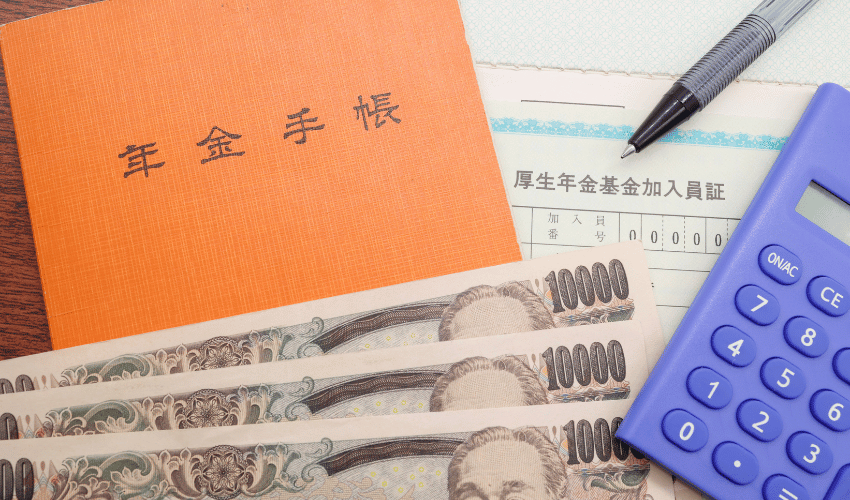For foreign nationals working in Japan, understanding the pension system is crucial. Many may wonder, “What is Japan’s pension system, and am I required to join it?” This guide will explain how the system works and clarify whether foreign workers are obligated to participate.
The Basics of Japan’s Pension System
Japan’s pension system operates as a form of social insurance, which provides financial assistance during life’s uncertainties, such as illness, unemployment, or old age. Within this framework, the public pension system helps support individuals in their retirement years or in the event of a family member’s passing.
All residents of Japan between the ages of 20 and 60, regardless of nationality, are required to join and contribute to the National Pension Plan. This includes foreign nationals who meet the residency requirements.
Types of Pension Plans: National and Employees’ Pension
Japan offers two primary types of pension plans:
- National Pension: Often referred to as the basic pension, this plan is mandatory for all residents aged 20 to 60.
- Employees’ Pension: This is available to company employees and public servants. However, if you work less than 20 hours a week or earn less than 88,000 yen per month, you may not be eligible for this plan.
Company employees are typically enrolled in both the National and Employees’ Pension plans, while others might only be part of the National Pension.
Pension Job Highlights
Participating in the pension system entitles you to receive several types of Job Highlights:
- Old-age Pension: Once you turn 65, you’ll receive monthly payments based on the contributions you’ve made throughout your working life.
- Disability Pension: If you’re unable to work due to illness or injury, you may qualify for this benefit.
- Survivor’s Pension: In the event of a family member’s death, their dependents may receive financial support, depending on the family structure and eligibility.
These Job Highlights extend beyond retirement, offering protection even to younger workers in case of unforeseen events.
Do Foreigners Need to Join?
Yes, foreign residents in Japan between the ages of 20 and 60 are required to participate in the National Pension system, just like Japanese nationals. The only exception is for those staying in Japan for a short-term period. Once enrolled, foreign workers receive the same Job Highlights as locals, ensuring equal protection under the system.
How to Enroll and Pay Pension Premiums
Enrollment and payment procedures differ depending on your employment status:
- National Pension (Category 1): If you’re self-employed or not employed by a company, you must register at your local city or ward office within 14 days of arrival in Japan. Payments are made through convenience stores or banks after receiving a payment slip from the Japan Pension Service.
- Employees’ Pension (Category 2): If you work for a company, your employer will handle the enrollment and deduct the premiums directly from your salary.
- Dependents (Category 3): If you’re dependent on a family member enrolled in the Employees’ Pension, you’re automatically covered, and no premium payments are required from you directly.
Avoiding Dual Pension Contributions
If your home country has a Social Security Agreement with Japan, you may avoid paying into both systems simultaneously. This agreement also allows for the aggregation of pension contributions made in both countries, ensuring that your total membership period is recognized.
Consequences of Not Paying Pension Premiums
Failure to pay pension premiums can lead to issues, such as difficulty renewing your visa or obtaining permanent residency. You may also lose access to important Job Highlights like the disability or survivor’s pension. It’s essential to stay current with your contributions to avoid these problems.
What to Do if You Can’t Afford Payments
If you’re facing financial difficulties and can’t pay the premiums, you may qualify for partial or full exemption from payments. You can apply for this exemption at your local city or pension office, and the unpaid premiums can be paid later, within a 10-year period.
Returning to Your Home Country
If you return to your home country before contributing for the minimum 10-year period required to receive a pension, you may be eligible for a Lump-sum Withdrawal Payment. This refund applies to those who have contributed for at least six months and must be claimed within two years of leaving Japan.
Required Documents for Lump-Sum Withdrawal
To claim the Lump-sum Withdrawal Payment, you’ll need:
- Lump-sum Withdrawal Payment Claim Form
- A copy of your passport
- Proof that you no longer reside in Japan
- Bank account information to receive the refund
- Pension booklet or notification of your basic pension number
Submit these documents via international mail or electronically to the Japan Pension Service.
Final Thoughts
Foreigners living in Japan are required to participate in the pension system, but there are options for those facing financial difficulties or planning to return to their home country. Enrolling ensures you’re protected in case of illness, injury, or other life events. Make sure to keep up with your payments and take advantage of the Job Highlights available.
Frequently Asked Questions
- Where can I get advice on the pension system? You can consult your nearest pension office or contact the Japan Pension Service for assistance. They also offer multilingual phone consultations.
- How much will I receive in pension Job Highlights? The amount is determined by the length of your enrollment and the premiums you’ve paid. Contact your local pension office for a personalized estimate.
- Where can I find more information? Visit the Japan Pension Service website or check out the Immigration and Immigration Control Agency’s portal for more details on pension procedures.


